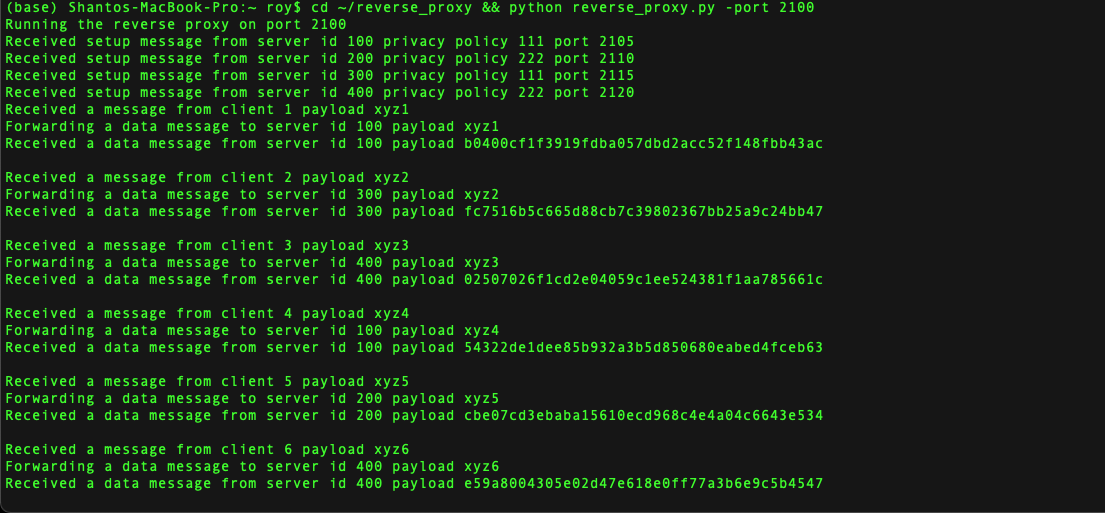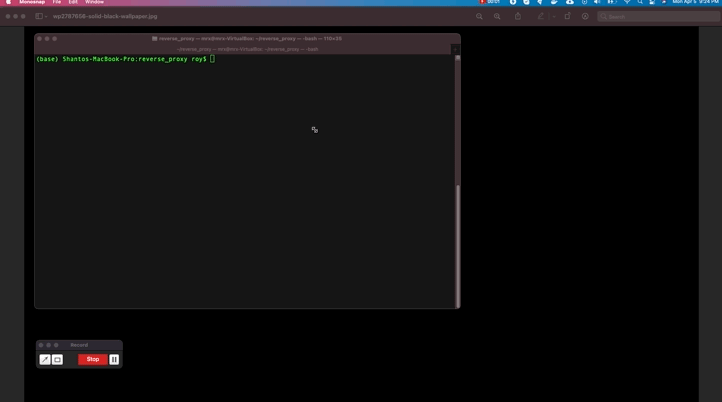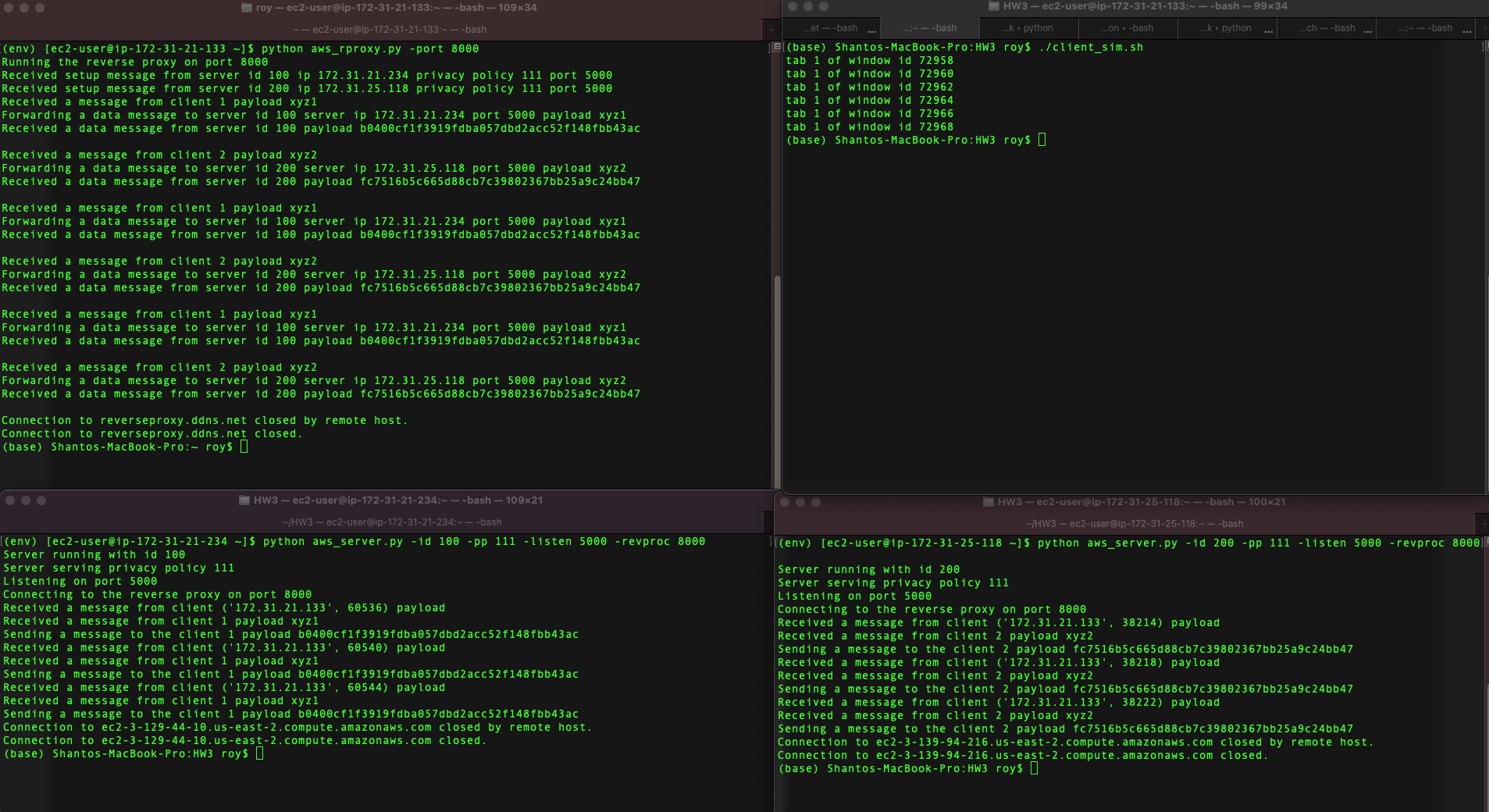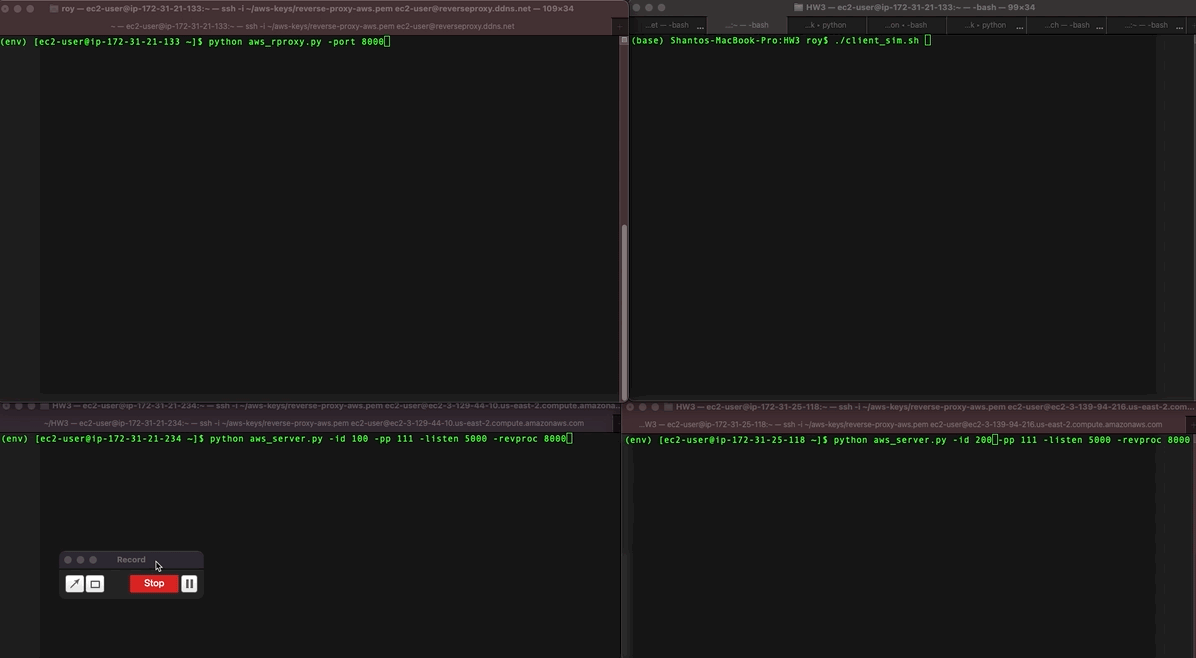The Reverse Proxy keeps track of available servers, receives client data, forwards client data to servers with corresponding privacy policy based on Round-Robin loadbalancing, receives processed data from servers, and returns the processed data to the clients. Each process is maintained using thread. The socket programming is done using python (version 3.x).
-
clone the repository to your home directory
-
make sure python (3.x) is selected by default as python (virtual env is preferable)
-
Run
pip install -r requirements.txt -
run
./main.shin Mac terminal or./main_linuxin a Linux terminal. Outputs are visible in several terminals. -
If
./main.shor./main_linuxdoes not work properly, please open new terminal tabs/windows (after going to thereverse_proxydirectory) and run the nodes as follows:- For the reverse proxy
$ python reverse_proxy.py -port 2100
- Example servers
$ python server.py -id 100 -pp 111 -listen 2105 -revproc 2100
- Example clients
$ python client.py -id 1 -revproc 2100 -pkt pktfiles/1.json
N.B. Please note that, you can change any of the argument values (id/pp/listen/revproc). For convenience here, I used only two privacy policies (111/222) for four servers and requested services from six clients to check if the round robin works properly.
The reverse proxy is also implemented in AWS EC2 instance. The working procedure will be published in a blog post (I will include the link later). Using one EC2 instance for reverse proxy and other two as a general server, you can take a look at the following visualizations
- Full Documentation
- Improve Automation
- Develop Fault-tolerant Load-balancing features
- Stack Overflow
- Github
- Other random tutorials
____ _ _ ____
/ ___|| |__ __ _ _ __ | |_ ___ | _ \ ___ _ _
\___ \| '_ \ / _` | '_ \| __/ _ \ | |_) / _ \| | | |
___) | | | | (_| | | | | || (_) | | _ < (_) | |_| |
|____/|_| |_|\__,_|_| |_|\__\___/ |_| \_\___/ \__, |
|___/
Created TextArt using patorjk.com





